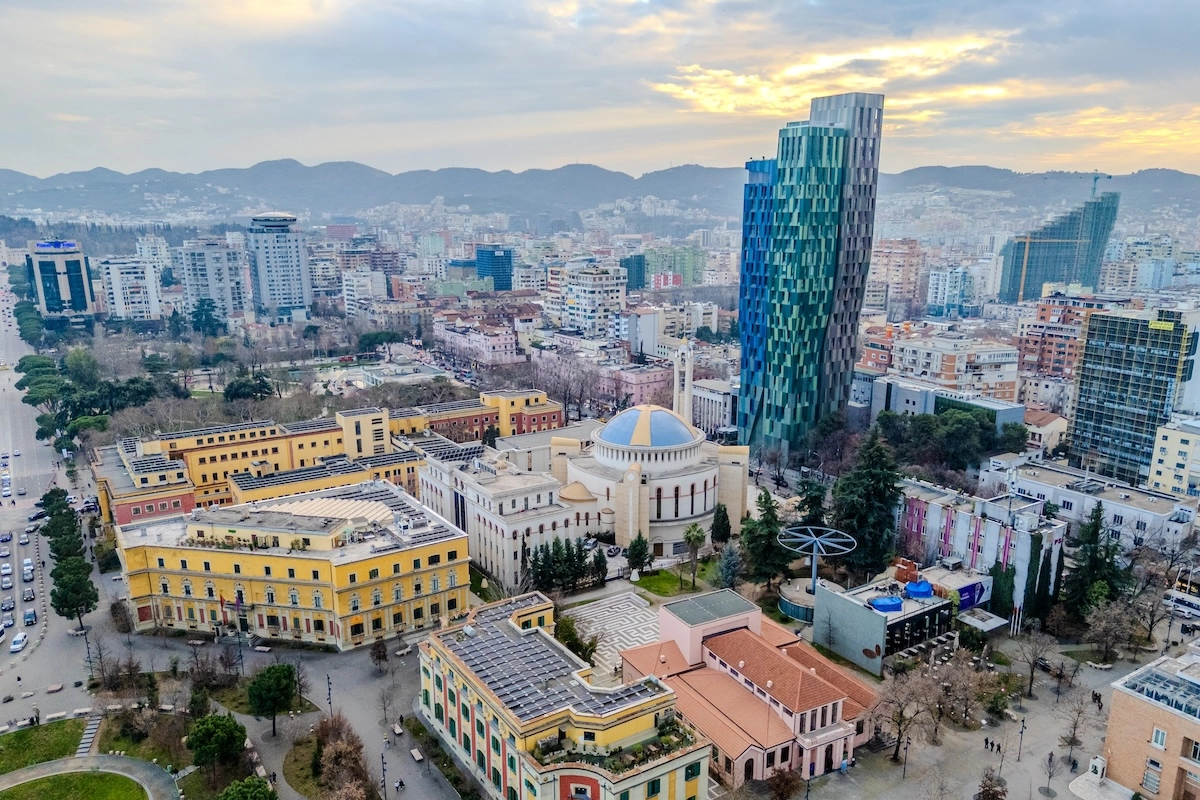The text was published on Politico.eu. The author of the article is Jan Cienski.
Toughening rules for asylum seekers is an effort to defang far-right parties ahead of next year’s presidential election.
Migration often provides an opening for far-right political parties. Poland’s Donald Tusk aims to slam that door shut by snatching the subject for himself.
That’s why the centrist prime minister declared that Poland would halt recognizing requests for political asylum, and last week forged a consensus among other EU leaders backing his call that a country can invoke security reasons as justification.
“He clearly saw migration as a difficult issue for his political future and he’s trying to neutralize it,” said Aleks Szczerbiak, a political scientist with the University of Sussex who keeps an eye on Poland.
The raw numbers don’t look all that terrible. Poland is a country of almost 37 million and so far this year there have been about 26,000 attempts to illegally cross the border from Belarus — part of an artificial migration flow created by Belarusian dictator and Vladimir Putin ally Alexander Lukashenko as a way of attacking the EU.
But the impact is big and growing. Germany has imposed temporary border controls and is sending thousands of migrants back to Poland. And Tusk cannot afford any political wobbles ahead of next year’s Polish presidential election.
It’s all about the president
Tusk is desperate to ensure that incumbent Andrzej Duda, an ally of the right-wing Law and Justice (PiS) party, is replaced by a friendlier president who will stop blocking key legislation.
Reacting with fury to Duda’s refusal to swear in ambassadorial nominees proposed by his government, Tusk on Oct. 10 posted on social media that he could not wait for Duda’s term to end. “I know, there are only 299 days left, but that’s 299 too many.”
But Tusk’s Civic Platform party is in a statistical dead heat with PiS, according to recent opinion polls. Although Warsaw Mayor Rafał Trzaskowski, seen as the party’s likeliest candidate, is ahead in presidential polls, PiS hasn’t yet chosen its own candidate.
Jarosław Flis, a political scientist at the Jagiellonian University in Kraków, underlined that every one of the last four presidential elections in Poland has taken a surprising turn in the final months.
“He is aware that even though Trzaskowski is leading in the polls, nothing is certain before the election and he knows that presidential elections often turn into referendums on the government,” said Flis.
That’s what makes Tusk’s asylum policy clampdown so important politically.
PiS leader Jarosław Kaczyński exploited the 2015 migration crisis when millions of people crossed into the EU, warning they carried “all sorts of parasites and protozoa” and that EU policies could force Poland to accept up to 100,000 Muslims.
The issue helped lead PiS to victory in the parliamentary election later that year.
“Migration is rocket fuel for radical-right parties,” Szczerbiak said.
Tusk, who had earlier served as prime minister from 2007 to 2014, returned to Polish politics in 2021 and took a much harder line on migration than many others in his party.
He pinched anti-migrant language from PiS, denouncing riots in France in 2023 and warning there was no acceptance of similar behavior in Poland.
That tougher line was one of the reasons that Tusk and his allies defeated PiS in last year’s election.
Growing frustration
But the last months of the new government have been disappointing, as Tusk’s promises to loosen Poland’s draconian abortion law, allow for civil partnerships for LGBTQ+ couples, roll back PiS’s politicization of the court system and prosecute wrongdoing by the former government have so far produced few results. The reason is both divisions within the ruling coalition and blocking actions by Duda.
The danger is that his own frustrated supporters will stay home during the presidential election, while PiS backers and other opposition voters will turn out in force.
Tusk’s appropriation of the migration issue has sucked the wind out of the opposition. PiS held a party convention on Oct. 12, but few noticed.
An early opinion poll found solid support for the PM’s initiative, with 49 percent in favor and only 24 percent opposed.
“This is about going on the attack and trying to position Civic Platform as the party of national security. There is definitely an eye toward the presidential election,” Szczerbiak said.
But Tusk faces potential dangers in making the issue his own. Flis noted he has a record of launching high-profile initiatives and then failing to follow through — as happened when Tusk called for the chemical castration of pedophiles, clashed with football hooligans, or launched a campaign against semi-legal narcotics.
If the same happens with migration it could blow up on Civic Platform.
Slamming immigration
After a few days of confusion, PiS is beginning to find its voice again on the issue.
Kaczyński wants Tusk to hold a national referendum to denounce the EU’s Migration Pact, which toughens the bloc’s rules but also forces asylum seekers to make applications in the first EU country they arrive in. That rule allows Germany to send people who crossed illegally from Belarus back to Poland.
“Germany is supplying us with migrants,” Kaczyński said on Friday. He denounced the new rules proposed by the government, saying Warsaw was preparing the ground to turn Poland into a “multiculti” country.
He also tried to crank up fears about newcomers in Poland — an increasingly potent theme in a country that a decade ago was home to only about 110,000 immigrants but now has an immigrant population of up to 4 million, according to a report by the Warsaw Enterprise Institute think tank.
“In Warsaw, there are places that district police officers warn against. There are attempts by migrants to break into apartments,” Kaczyński said.
One of his MPs, Sebastian Kaleta, warned that the city of Warsaw was preparing to rent out a building to be used as a mosque.
Centrist politicians who try to seize on right-wing issues risk being outflanked by parties more at home on such turf. That’s what happened to Dutch Prime Minister Mark Rutte, who promised to impose a tougher migration policy but largely failed, opening the door for last year’s electoral victory by anti-Islam, anti-immigration populist Freedom Party leader Geert Wilders.
“There is a risk to Tusk doing this, but he clearly doesn’t agree,” Szczerbiak said.

 1 rok temu
1 rok temu













